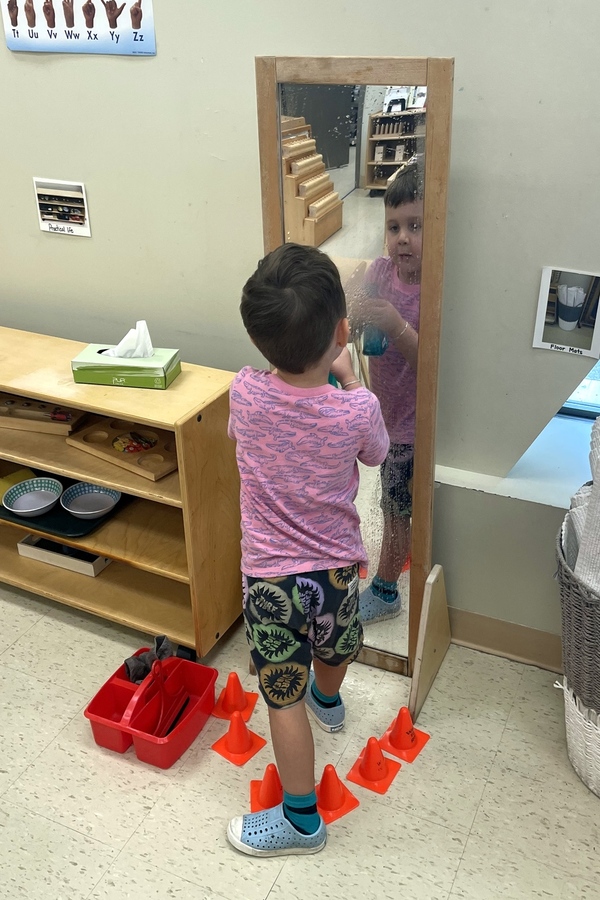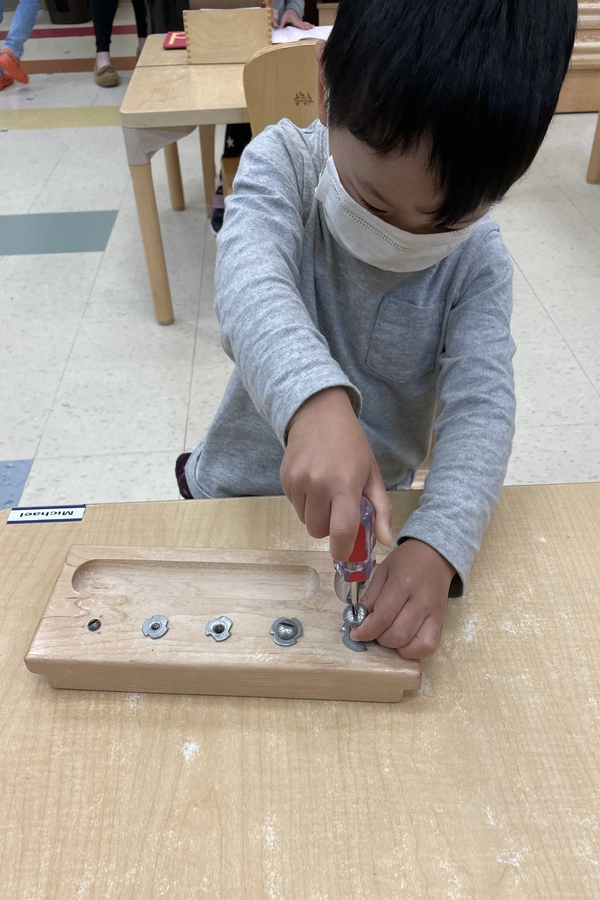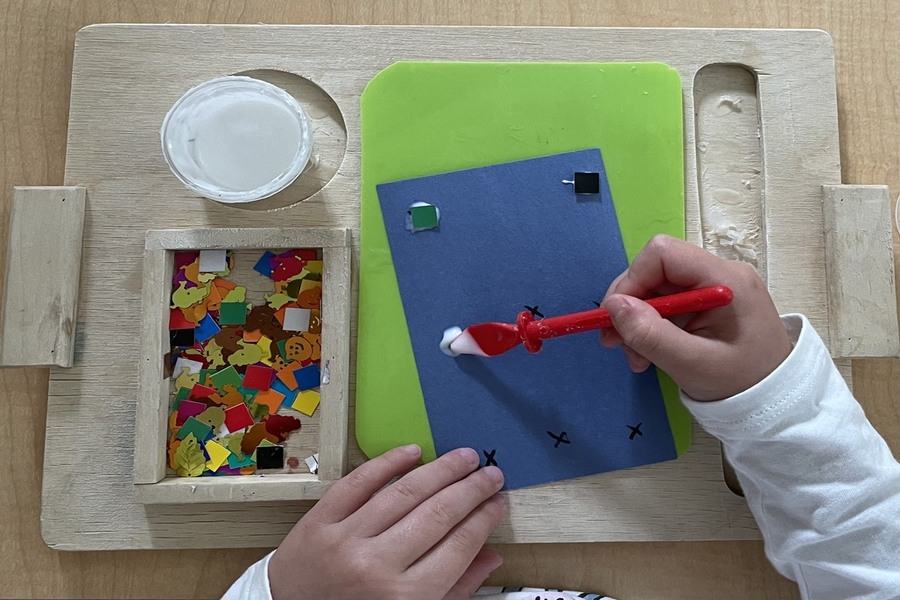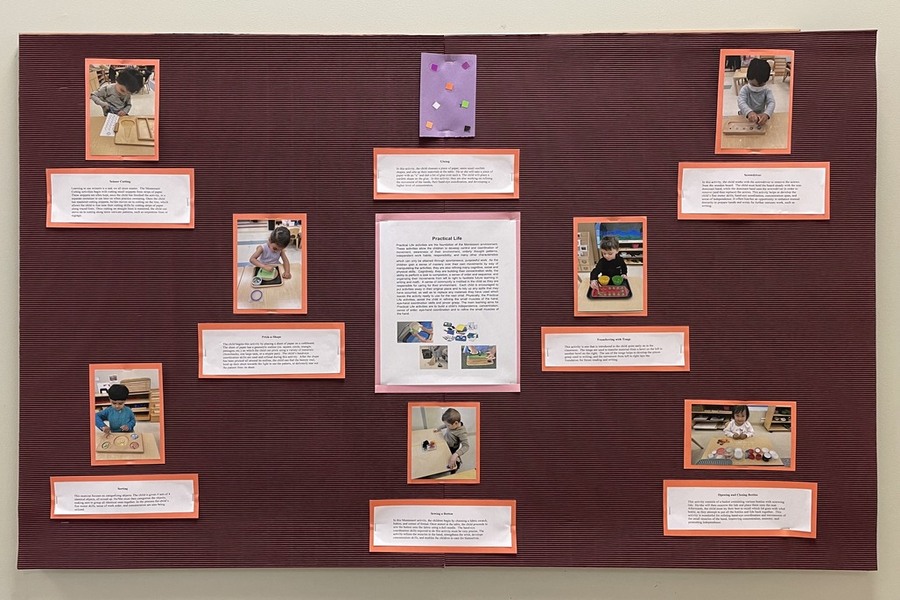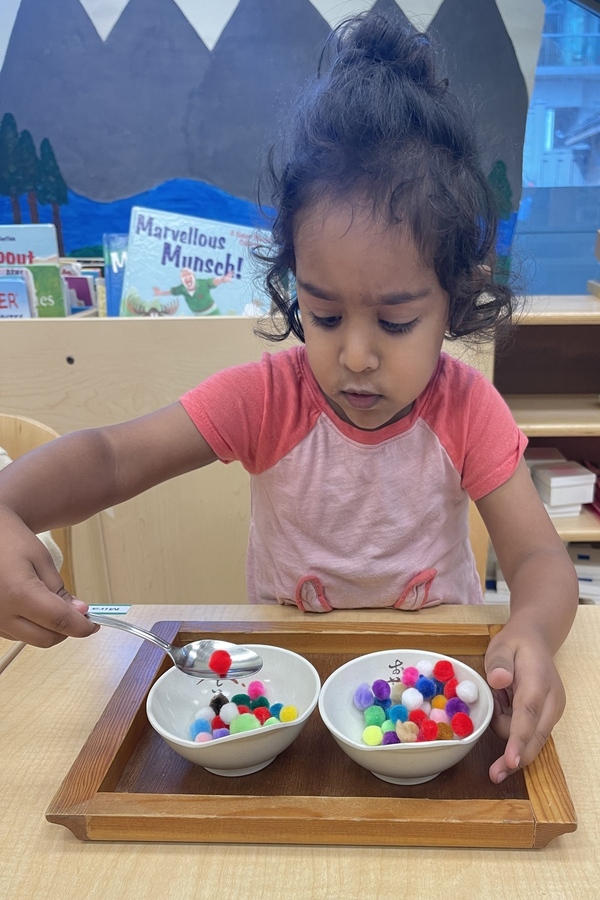
Practical Life activities are the foundation of the Montessori environment. These activities allow the children to develop control and coordination of movement, awareness of their environment, orderly thought patterns, independent work habits, responsibility, and many other characteristics which can be attained through spontaneous, purposeful work. As the children gain a sense of mastery over their own movements by way of manipulating the activities, they are also refining many cognitive, social and physical skills. Cognitively, they are building their concentration skills, the ability to perform a task to completion, a sense of order and sequence, and organizing their movements from left to right to facilitate future learning in writing and math. A sense of community is instilled in the child as they are responsible for caring for their environment. Each child is encouraged to put activities away in their original place and to tidy up any spills that may have occurred, as well as to replace any material they have used, which leaves the activity ready for the next child. Physically, the Practical Life activities assist the child in refining the small muscles of the hand, pincer grasp, and eye-hand coordination skills. The main learning aims for Practical Life activities are to build a child’s independence, concentration, sense of order, eye-hand coordination, and to refine the small muscles of the hand.
